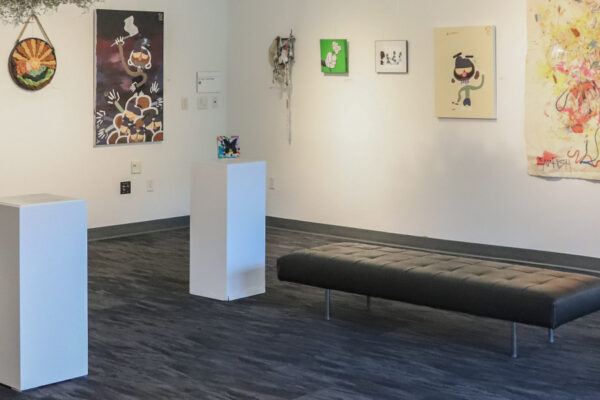By Alexander J. Wood
A 2012 graduate of IUPUI’s English program, Jacob Sunderlin holds an MFA in Creative Writing from Purdue University. He has earned grants from organizations including the National Endowment for the Arts and is the author of This We in the Back of the House (Saturnalia Books, 2022), a collection of poems that Sunderlin began as scribbles on yellow legal pads between work shifts and on smoke breaks over the past decade. Each piece in the debut anthology is an honest comment on the trials and tribulations of blue-collar labor in modern Middle America.
On April 1st, he and fellow poet Michael Robins presented at a reading where they volleyed between their works, finding shared elements and themes in their craft for a rapt audience at Indy Reads Books in Indianapolis. Afterward, he was kind enough to answer a few of my questions.
As a creative and a professional, what has kept you going after graduation and up to publication?
You write, you get better, and write better stuff. The nice thing about poems is that they’re short and you can publish more of them, sometimes. And that helps, just because it gives you that little nugget of confidence to say, “Well, I must not suck. I have this poem in this thing, so I must have something worthwhile.”
Do you keep up any writing-related habits or do you have a creative process that comes spur of the moment?
Kind of like fruit, during some seasons – fruit does not grow. And that’s our problem with fruit, it’s just the way it works. And at a certain point, it’s like getting ripe and when that happens you need to be there ready with a basket. Otherwise, it’s going to fall on the ground and rot. The process can be really quick sometimes and that means you’ve got to be ready. Some people I know, that means they try every day because you gotta be there with the basket. I do not. And a part of that is just practical. I have a one-year-old and a teaching job. Those things suck up a lot of your time. So for me, when I get the opportunity, I try to have my basket ready.
Would you say that your work comes naturally or is it more of a conversation you have to prompt forward?
Usually at the beginning, it’s sort of musical. [This is understandable as he is also a composer of experimental synth and instrumental music.] It’s similar to that process where it’s what sounds interesting to me. And then the process of revising is the process of moving it towards sense, moving it toward another person. And so, that would kind of involve returning to your writing kind of like a doctor asking, what is the patient doing today? With poetry, you just have to be honest with yourself. What do you really want out of your writing?


